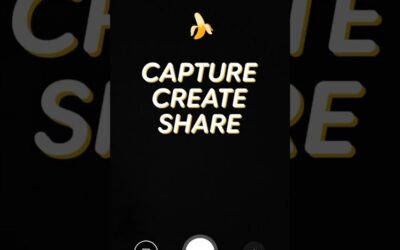Prince Harry, Meghan Markle global call to ban ‘superintelligent’ AI:List of high-profile figures cautioning that AI must not be allowed to operate without limits

Prince Harry and Meghan Markle have joined a growing chorus of scientists, tech pioneers, and even conservative commentators to call for a halt to the creation of AI that could outperform humans in nearly every mental task.
This isn’t about the AI you use on your phone, it’s about the kind that can think, plan, and decide faster than humans, sometimes called superintelligence or artificial general intelligence (AGI). Prince Harry: The future of AI should serve humanity, not replace it. I believe the true test of progress will be not how fast we move, but how wisely we steer. There is no second chance. Who’s speaking up The letter, organised by the nonprofit Future of Life Institute, brings together scientists, business leaders, celebrities, and political voices: The statement is clear and urgent: We call for a prohibition on the development of superintelligence, not lifted until there is a broad scientific consensus that it can be done safely and controllably, and strong public buy-in. Stuart Russell, AI researcher, emphasized the stakes: It’s simply a proposal to require adequate safety measures for a technology that, according to its developers, has a significant chance to cause human extinction. Is that too much to ask? Why some writers are against AI AI is great for research, music, and creativity but many writers and authors are speaking out against how it’s being trained. Lawsuits are piling up: These disputes highlight a major tension: AI needs huge amounts of text to “learn,” but authors argue they deserve credit and payment. Some fear AI could devalue human creativity if companies profit from copying work without permission. Alex Yang, Professor at London Business School said: You need that fresh training data from human beings. If you want to grant more copyright to AI-created content, you must also strengthen mechanisms that compensate humans for their original contributions. Prince Harry warns about disinformation AI isn’t just about writing or creating art, it also spreads misinformation. During a visit to Colombia, Prince Harry warned: People are acting on information that isn’t true. For as long as people are allowed to spread lies, abuse, and harass, then social cohesion as we know it has completely broken down. Hollywood stars join the fight It’s not just scientists and authors, Hollywood is speaking out too. Over 400 filmmakers, writers, actors, and musicians signed an open letter urging the Trump administration not to loosen copyright protections for AI training. Some of the stars include: Ben Stiller, Mark Ruffalo, Natasha Lyonne, Bette Midler, Aubrey Plaza, Cate Blanchett, Paul McCartney, Taika Waititi, Joseph Gordon-Levitt, Ava DuVernay, and many more. What was the letter about The letter was a response to OpenAI and Google’s submissions to the U.S. Office of Science and Technology Policy, which suggested AI companies could train their systems on copyrighted works without permission.
The Hollywood group warned that loosening copyright rules would harm creative industries that support over 2.3 million U.S. jobs and generate $229 billion in wages annually. “AI companies are asking to undermine this economic and cultural strength by weakening copyright protections for the films, television series, artworks, writing, music, and voices used to train AI models at the core of multi-billion dollar corporate valuations.” Hollywood’s pushback follows broader debates about digital rights. SAG-AFTRA, the actors’ union, won protections for actors’ consent and compensation when AI is used to replicate their performances in films and TV shows. California also passed laws banning commercial use of digital replicas of deceased actors without permission. The debate is heating up AI is advancing faster than many expected. Companies racing toward superintelligence, like Google, OpenAI, and Meta, are under scrutiny not just for safety, but also for exaggerated claims about AI abilities. Max Tegmark, president of the Future of Life Institute, summed it up: In the past, it’s mostly been the nerds versus the nerds. Now, the criticism has gone mainstream. AI must serve humanity, not exploit it AI has enormous potential, from curing diseases to strengthening national security, but unchecked superintelligence could be dangerous.
Meanwhile, writers, actors, and other creatives are demanding credit, consent, and compensation for their work.The conversation has moved beyond tech, now it’s about ethics, law, culture, and the future of human creativity.
Search
Recent
- How did Aqil die? Ex-Punjab DGP Mohammad Mustafa opens up on son’s death amid murder probe
- Scientists hope underwater fiber-optic cables can help save endangered orcas
- How did Aqil die? Ex-Punjab DGP Mohammad Mustafa opens up on son’s death amid murder probe
- How did Aqil die? Ex-Punjab DGP Mohammad Mustafa opens up on son’s death amid murder probe
- How did Aqil die? Ex-Punjab DGP Mohammad Mustafa opens up on son’s death amid murder probe



